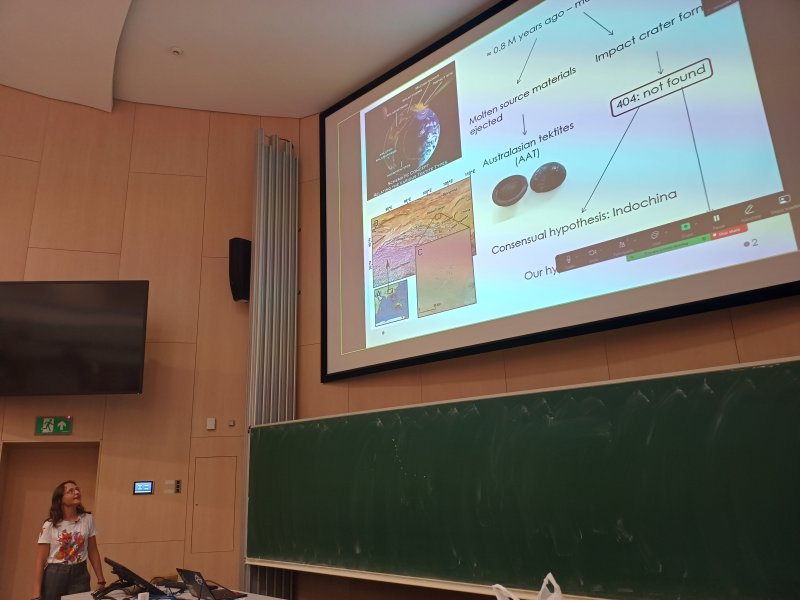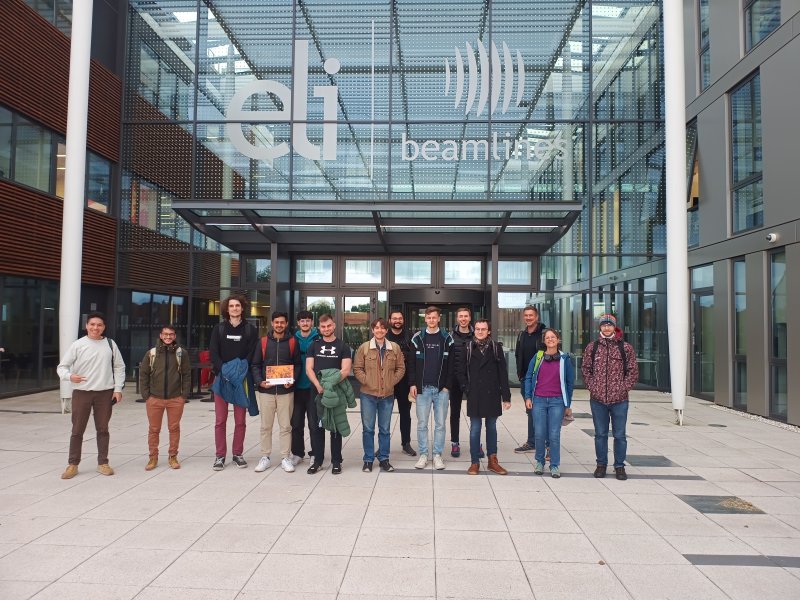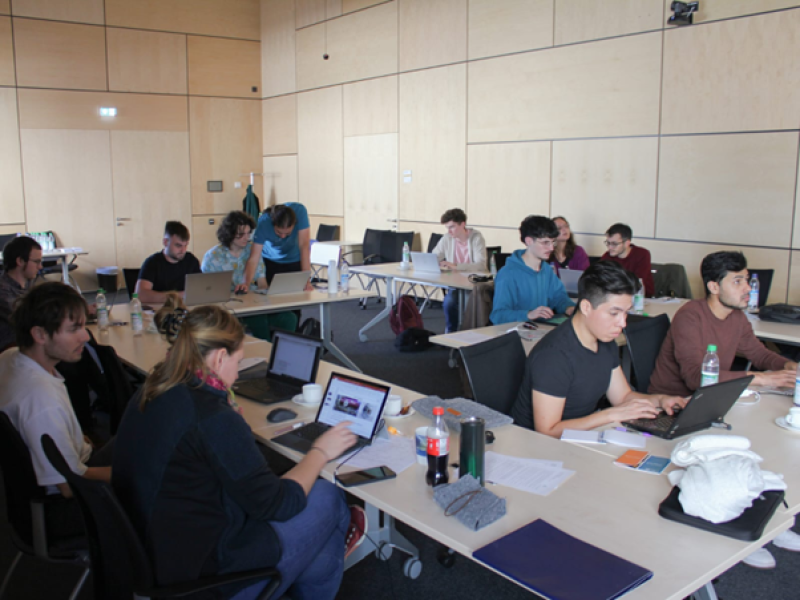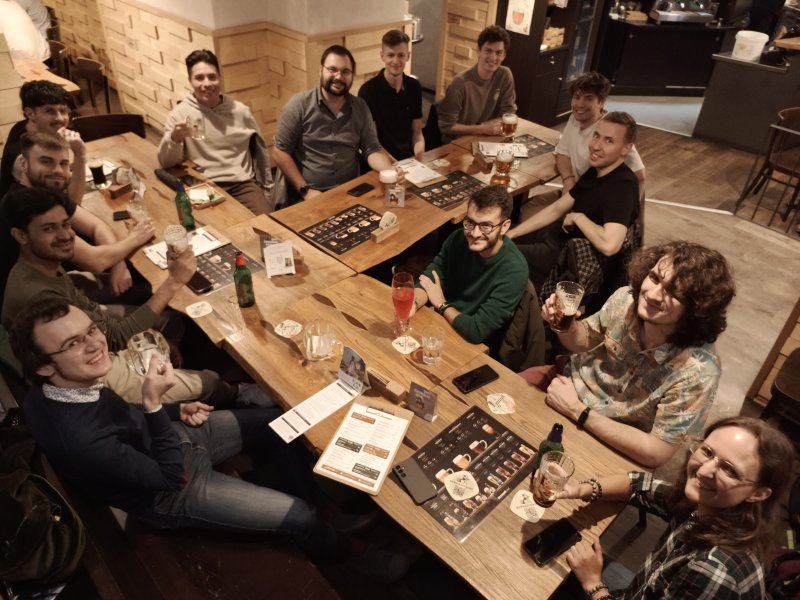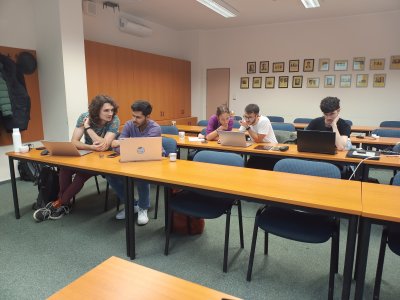
Students analyzing heat capacity data at MGML laboratories
The third edition of the Czech-Bavarian Mini-School was hosted by Charles University in Prague together with the Technical University of Munich, focusing on educating students in modern experimental techniques. The program began in the MGML laboratories (established by our department), where participants attended lectures on magneto-optics and crystal growth, toured the state-of-the-art MGML facilities, and visited the VR-1 Training Reactor in Prague. The practical sessions included low-temperature measurements and heat capacity data evaluation, adhering to F.A.I.R. principles.
Another key element of the program was the visit to ELI Beamlines, where students learned about laser beam generation, laser-driven X-ray sources, and laser ellipsometry. They also had the opportunity to explore cutting-edge laboratories housing high-intensity lasers. A highlight of the Prague program was the flash talk competition, where students presented their research projects. The program concluded with lectures on data processing and F.A.I.R. principles. Petr Čermák demonstrated how to document data using scripts, and participants applied their new knowledge in hands-on sessions.
The final part of the program took place in Munich at the FRM II research reactor and the MLZ infrastructure. Students gained theoretical foundations and practical experience in neutron scattering techniques, including hands-on training with virtual instruments. The program also included a tour of the facilities, where participants saw the reactor pool and a diverse range of neutron scattering instruments, which became one of the event’s highlights.
The Czech-Bavarian Mini-School is a unique educational opportunity that allows students to acquire valuable skills and experience in material physics, from laser technologies to neutron applications. Participation is free for students, thanks to the generous support of the Czech-Bavarian Academic Agency. We look forward to the next edition in two years!




